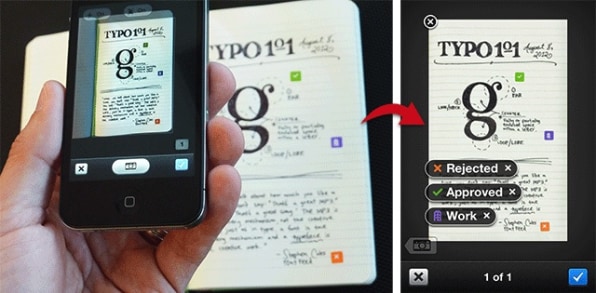S D Logo With Chinese Writing
When was the last time you wrote something down by hand?
To a certain app-happy, tech-savvy bunch, the question seems like a joke. Wrote? As in with a pen? On a Galaxy Note or something?
But Moleskine, a company that supplies analog-loving creatives with their beloved paper notebooks, isn't sweating the tech.
Instead of reacting to the digital revolution with the panic of the music or photo industry, Moleskine just launched a partnership with Evernote, a firm that specializes in digital note taking and archiving. It doesn't dilute Moleskine's core identity as a notebook maker. Instead, it's a special-edition paper notebook that has carefully inked lines that make it easy to digitize your scribblings into an Evernote entry when scanned by your phone or tablet's camera.

And you thought Evernote and Moleskine were like cats and dogs. In fact, Marco Beghin, president of Moleskine America tells Fast Company it was a blast to work with Evernote: "Evernote has always been a friend of ours. We've always looked at each other since they were formed. [Working with them] was a fantastic experience, even during the recent event thanks to their confidence and support. It was a natural partnership, and we both trusted it was possible."
Moleskine has set up a new digital team to tackle developments just like this, and the Evernote collaboration is its first product. The team is part of a bigger strategy, according to Beghin: "The partnership with Evernote is the first project that's part of a bigger analog-digital vision we have. This is really related to transferring content from place to place–it's this content being moved from analog to digital and vice versa that we really want to focus on, with the values our brand stands for."
Far from being cause for concern, Beghin argued that the transition from analog to digital is a great opportunity for his company: "By observing our public, and ourselves, we realize of course that we're highly digitalized. And we've seen that the job of going back and forth from analog to digital is not that easy. So the partnership with Evernote has a focus on positioning the brand on our fans who are digitalized."
Beghin described Moleskine as working in as a "continuum" between analog and digital. "We've always been very interested in this continuum [between analog and digital], and we think we navigate very successfully here. I would say that because we're focused on this continuum, we've expanded our product line to include products our customers can trust," he noted. "Today we carry with us bags, notebooks, pens, but we also carry applications–and so we want to integrate this into what we do at Moleskine."
What Moleskine is doing is not panicking about the rise of the smartphone. It's looking at how its fans relate to its products and also looking at the sorts of daily writing tasks they're doing in the digital era. Then it's embracing both of these ideas without abandoning one or the other. The ability to try this comes from supreme confidence in its strong brand image, which the company actually sees as being a key contributor to the identity of its fans.
And what's next? First, Moleskine is trying an IPO. After that, its development plan is not what you think–we're not likely to be seeing a Moleskine tablet any time soon. Beghin was careful to note the company was indeed keen to pursue more partnerships like the one with Evernote. But the next idea will be to take digital content and try to make it physical–Moleskine is so certain people prefer the physicality of its products, it's going to look at how it can turn digital words into more tanglible printed ones.
In an era of Instagram, SMS, and where ghostly emails that define our relationships with colleagues and friends flit across our computer screens, that's quite refreshing.
[Image: Flickr user Sean McGrath]
Chat about this news with Kit Eaton on Twitter and Fast Company too.
S D Logo With Chinese Writing
Source: https://www.fastcompany.com/3000934/quick-write-down-notebook-maker-moleskine-goes-analog-digital
Posted by: farrellfroma1981.blogspot.com

0 Response to "S D Logo With Chinese Writing"
Post a Comment